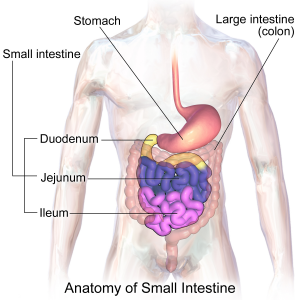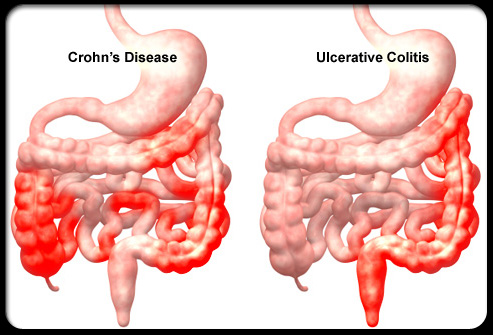Small Bowel Specialist in Mumbai
Our bowels are the part of Digestive System. They are made up of Small bowels called the Small intestine and the Large bowel called Colon and rectum or large intestine. The length of the small bowel is longer than the large bowel but it gets its name from the term that it is much thinner than the large intestine or bowel. Dr. Harshad Joshi is a Small Bowel Specialist in Mumbai. He explains the role of the small bowel is to break the food down even further so that the nutrients are been absorbed by the body. The undigested food or waste moves into the colon.

Your small bowel performs most of the digestion activity of the food you eat. It has three areas called the duodenum, the jejunum, and the ileum. Problems related to the small intestine are:
- Bleeding
- Infection
- Intestinal Cancer
- Intestinal Obstruction
- Irritable bowel syndrome (IBD)
- Ulcers.
The treatment of diseases related to the small bowel depends on the cause. This treatment is been provided by a Small Bowel Specialist in Mumbai- Dr. Harshad Joshi. There are various types of diseases affecting the small intestine. Some diseases affect the way food is digested and absorbed within the body. Other ways can be because of swelling, ulcers, or infection. Small bowel disease can lead to further complications if not treated, so it is important to see Small Bowel Specialist if you suffer from any of the symptoms.
Small bowel disorders include:
- Crohn’s disease of the ileum
- Regional enteritis
- Obscure bleeding
- Iron deficiency anemia
- Malabsorption
- Celiac disease
- Gluten disorders
- Functional gastrointestinal disorders
- Antibiotic-associated diarrhea
Diagnosing small bowel disorders:
They are various tools used to diagnose bowel disorders:
- A CT scan or an MRI to get a clear image of the problem
- Colonoscopy
- Blood Test: In this test, the Fecal Immunochemical Test (FIT) a newer version of the fecal occult blood test (FOBT) is used to detect minute traces of blood in the stool.
- Small bowel follow-through is used to check the small intestine
- Capsule Endoscopy: It is a small shaped capsule, which is swallowed by a patient, and it contains a tiny camera that the doctors use to record images of the small intestine. Capsule Endoscopy is done to get a clear and enhanced view of the upper digestive tract which in terms may not be visible via traditional endoscopy. Dr. Harshad Joshi is proud to provide capsule endoscopy- a procedure performed by a small bowel specialist in Mumbai.
IBD Specialist in Mumbai
Inflammatory bowel disease (IBD) describes a group of intestinal ailments causing continued inflammation or swelling of the digestive tract. Our digestive tract involves the mouth, esophagus, stomach, small intestine, and large intestine. It is responsible for churning down the food, obtaining the nutrients, and eliminating any unusable material and waste products. Inflammation to any of the digestive tract disturbs the process. IBD can be very painful and disruptive, and in some cases, it may even be life-threatening. Dr. Harshad Joshi is an IBD Specialist in Mumbai, he has done his specialization in gastroenterology.

What are the causes of IBD?
The exact cause for IBD is still not known. But however, it is associated with genetic problems and problems related to the immune system. Scientist believes that you might more likely develop IBD if any of your sibling or parent has this disease and that is why it may have a genetic component.
What are the main types of inflammatory bowel disease?
IBD consists of 2 main and common types of disease: Ulcerative colitis and Crohn’s disease.
- In Crohn’s disease, the inflammation can be caused to any part of the digestive tract, it is mostly affected at the tail end of the small intestine.
- In Ulcerative colitis, the inflammation can be caused to the large intestine.
What are the risk factors with IBD?
The most important risk factors for developing Crohn’s disease and Ulcerative Colitis include:
Smoking: Is considered to be the foremost risk factor for developing Crohn’s disease, it aggravates the pain and symptoms, also increases the risk of complications. Ulcerative Colitis primarily affects non-smokers and ex-smokers.
Age: Inflammatory bowel disease can arise at any age, but most commonly it has started before the age of 35.
Frequently Asked Questions on IBD
IBD (Inflammatory bowel disease) is an autoimmune disease in which the body’s immune system attacks cells within the bowel. It is considered to be a genetic problem and is also hereditary. In some cases, it can be triggered by environmental circumstances, overuse of medicines, daily lifestyle..
There is no proof that stress causes IBD. However, there is an emerging agreement that stress and a person’s perception of how stress affects them can impact on any chronic illness, which is also true in IBD. Hence, if a patient has stress issues, it too requires attention for the treatment.
A gastroenterologist may presume IBD condition based on the medical history and what kind of symptoms you have. They will perform endoscopy and colonoscopy procedures and take a sample of tissue (biopsy) along with this blood tests, a stool sample and CT scans will be performed.

